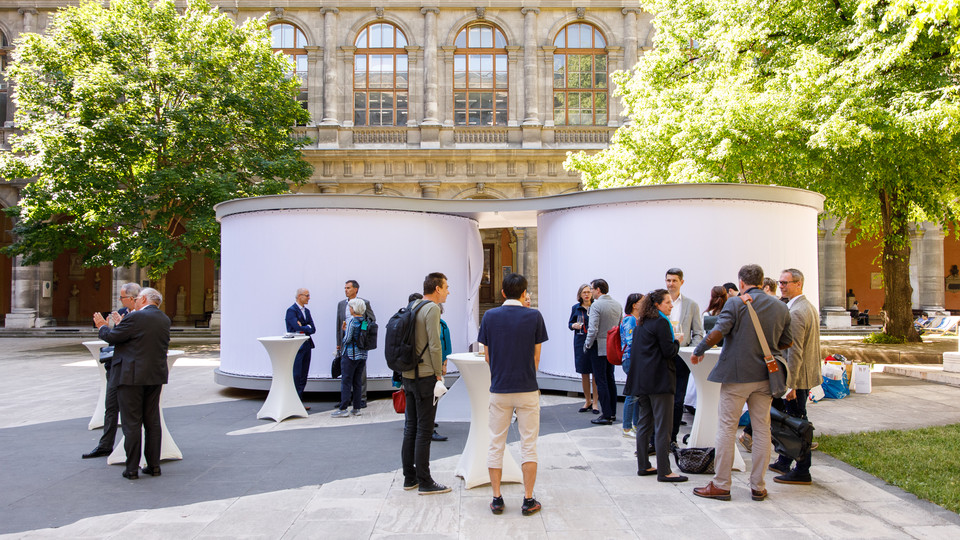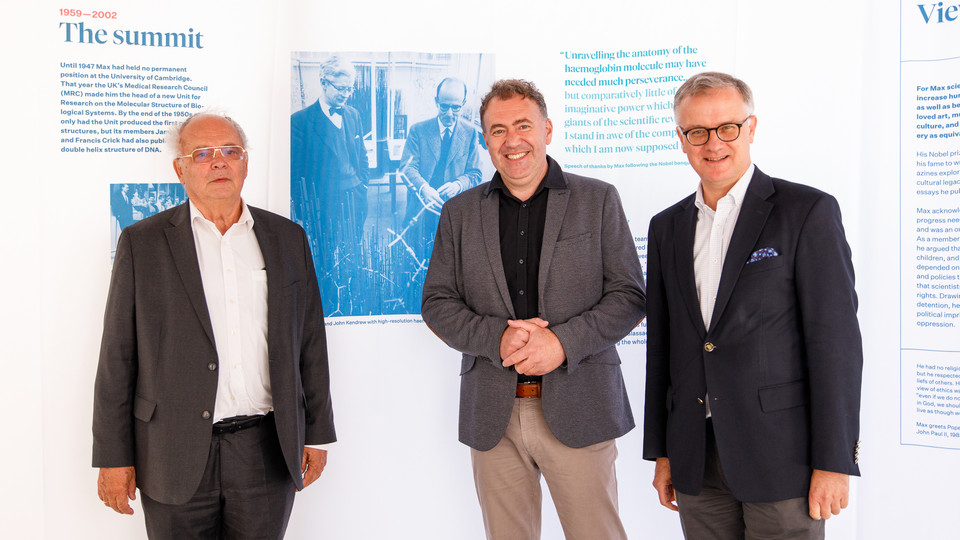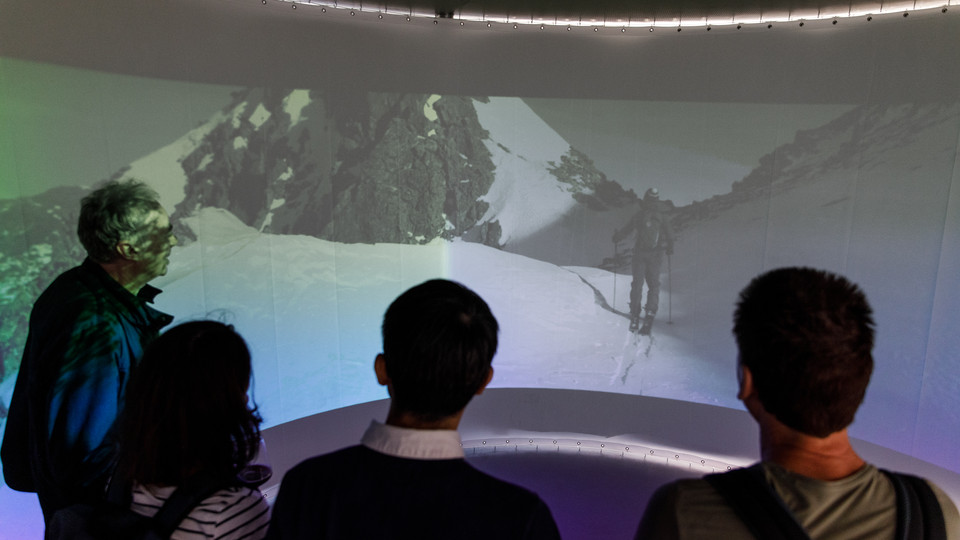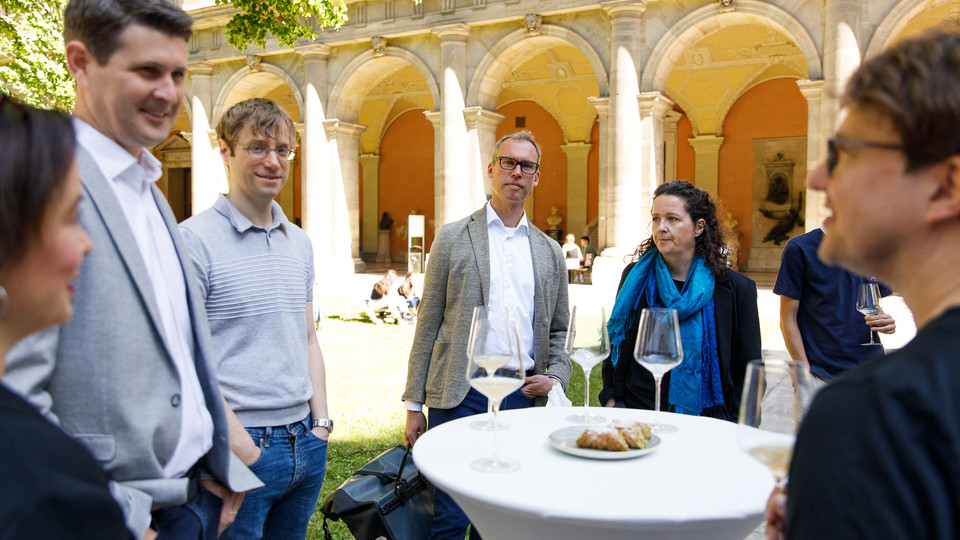



108 years ago on May 19th 1914, Max Ferdinand Perutz was born in Vienna into a Jewish family. His life was shaped by emigration to the UK, time in prison, and as an enemy alien. Years of tireless research followed, which saw him lead the world-famous Laboratory of Molecular Biology in Cambridge, UK and win the Nobel prize for Chemistry in 1962 - a biography that illustrates a tremendous amount of effort and determination.
"Beyond his outstanding scientific achievements, Max Perutz remained a disarmingly modest man who used his impressive intellect and quiet charm relentlessly in the cause of peace and freedom", says Scientific Director Alwin Köhler. "Never a really political person, Max Perutz occupied the larger public stage by his popular and accessible science books and his brilliant lectures."
The exhibition was created in cooperation with science writer and Max Perutz´ biographer, Georgina Ferry: "The story of a small Viennese schoolboy with a passion for climbing mountains, who later would go on to win the Nobel prize for discovering how breath connects to blood, is one of the most inspiring adventures in 20th century science", she says. The design of the multimedia exhibition pavilion was inspired by the shape of a red blood cell, which is packed with hemoglobin, Max’s favorite molecule.
From his youth as a student at the University of Vienna and throughout his entire life Max Perutz remained a passionate mountaineer. Breathing at High Altitude brings together his personal biography and his research: the lifelong, unremitting endeavor to discover the structure of hemoglobin and his love for mountains.